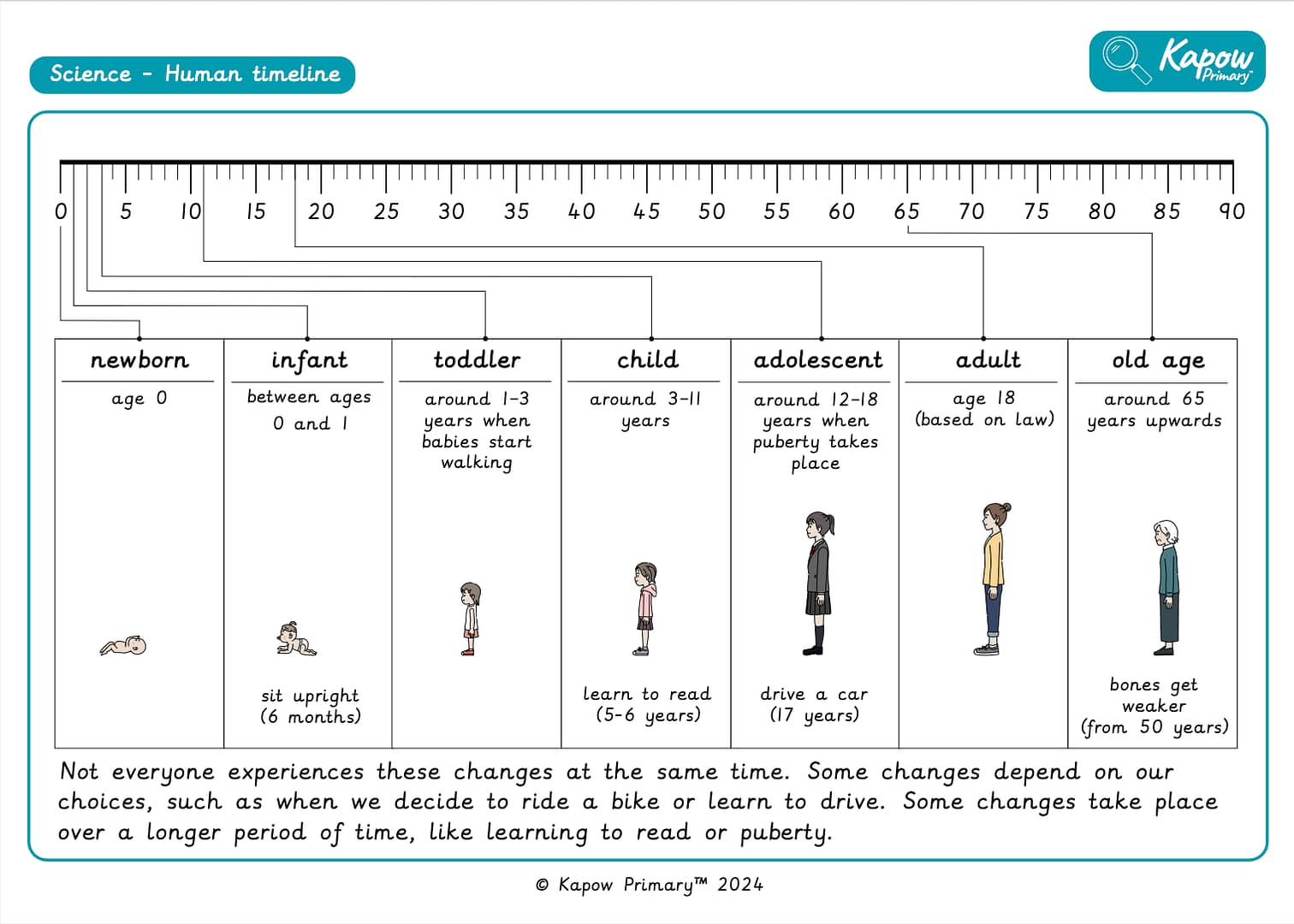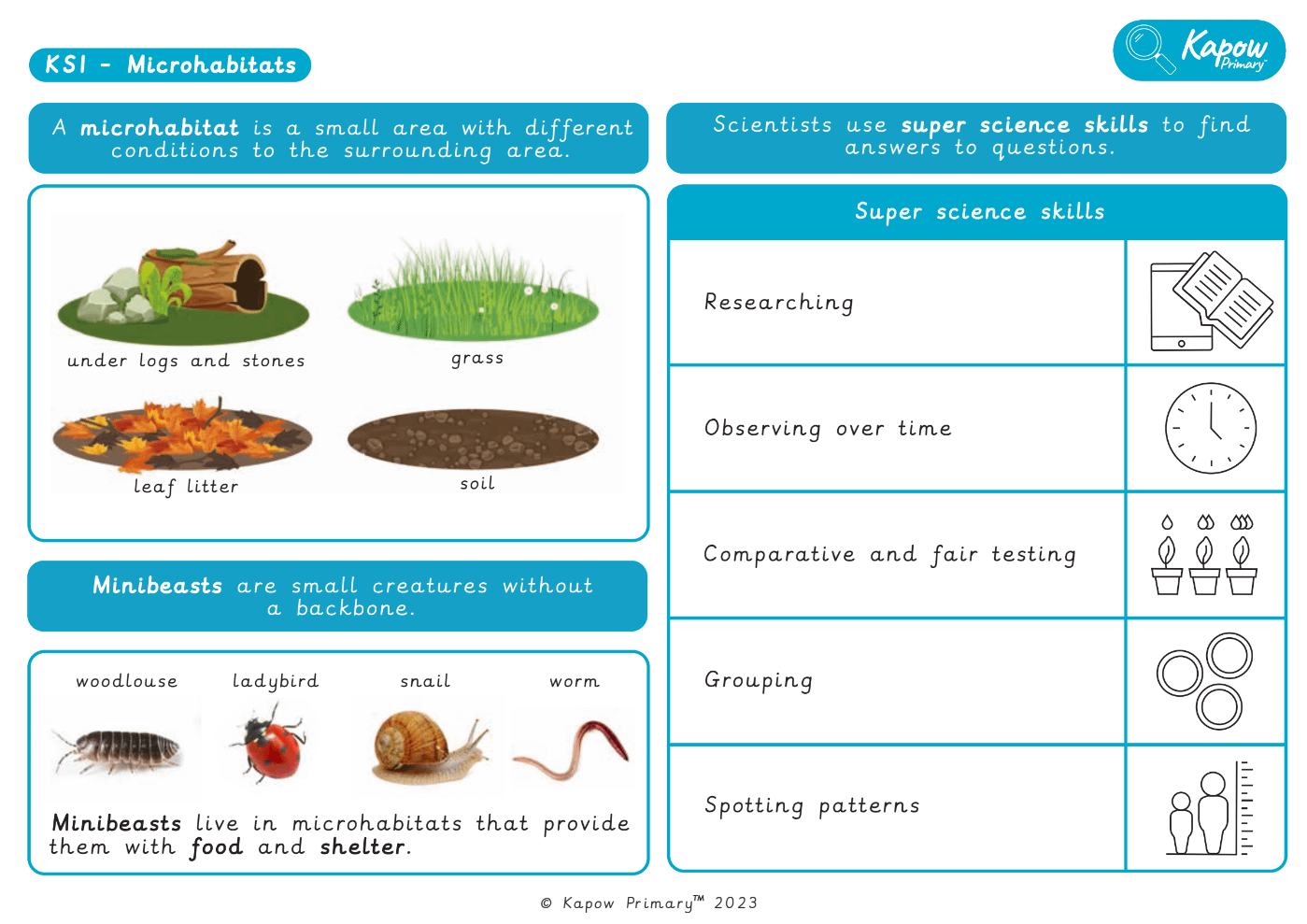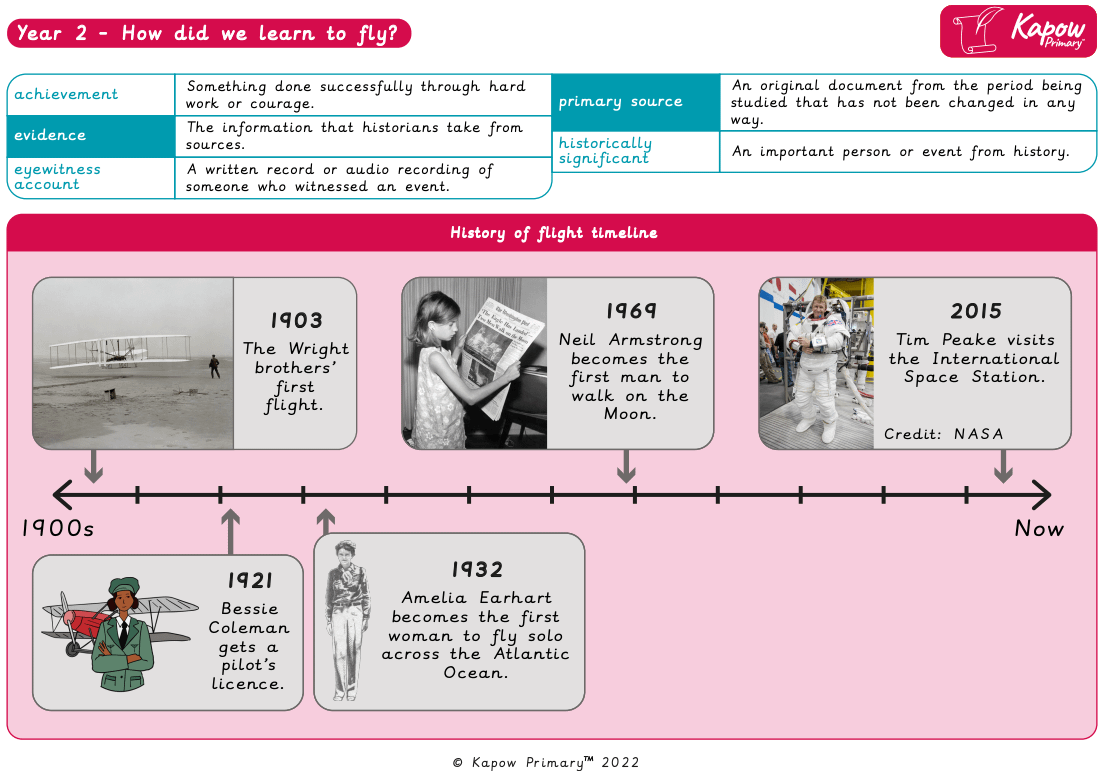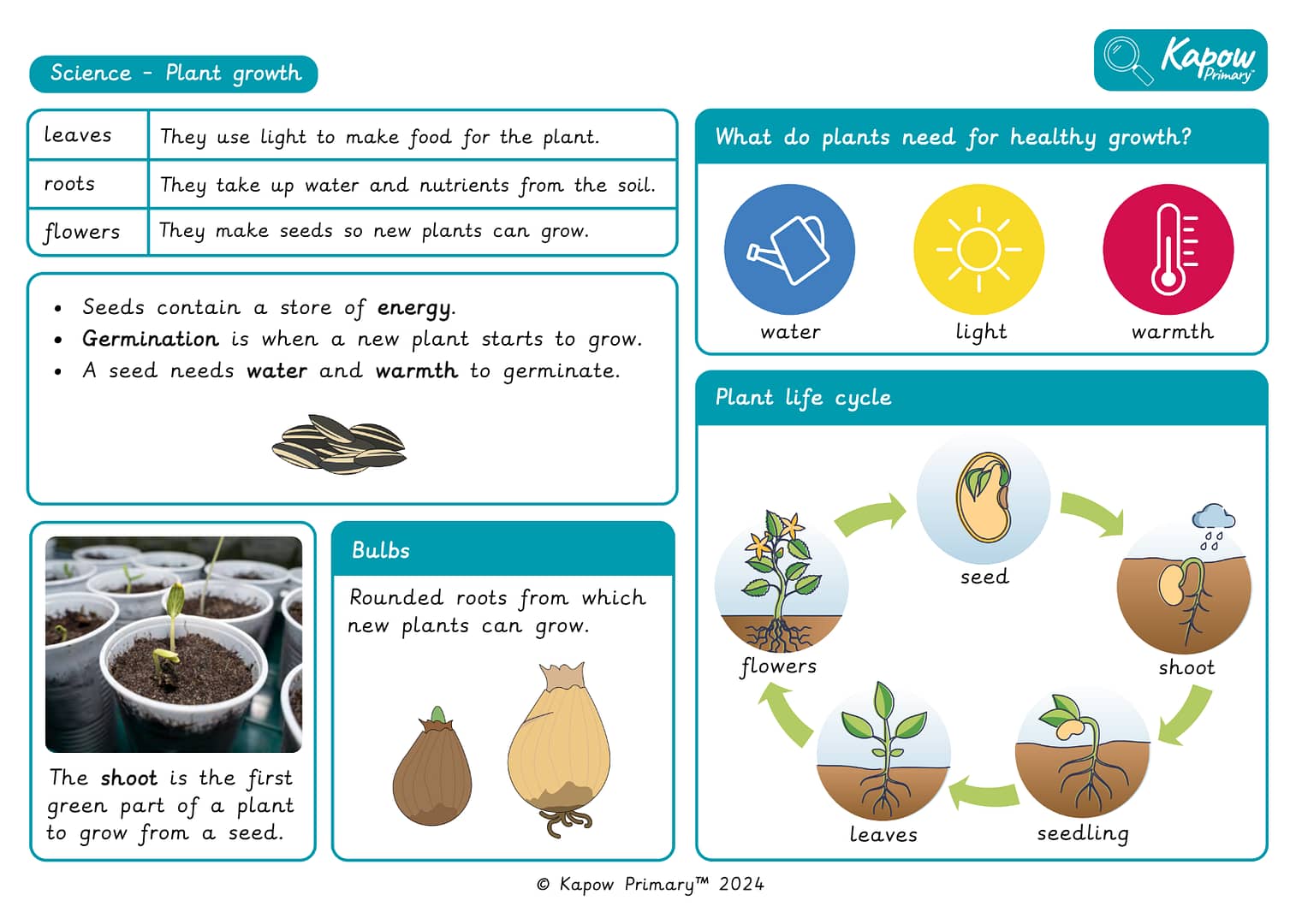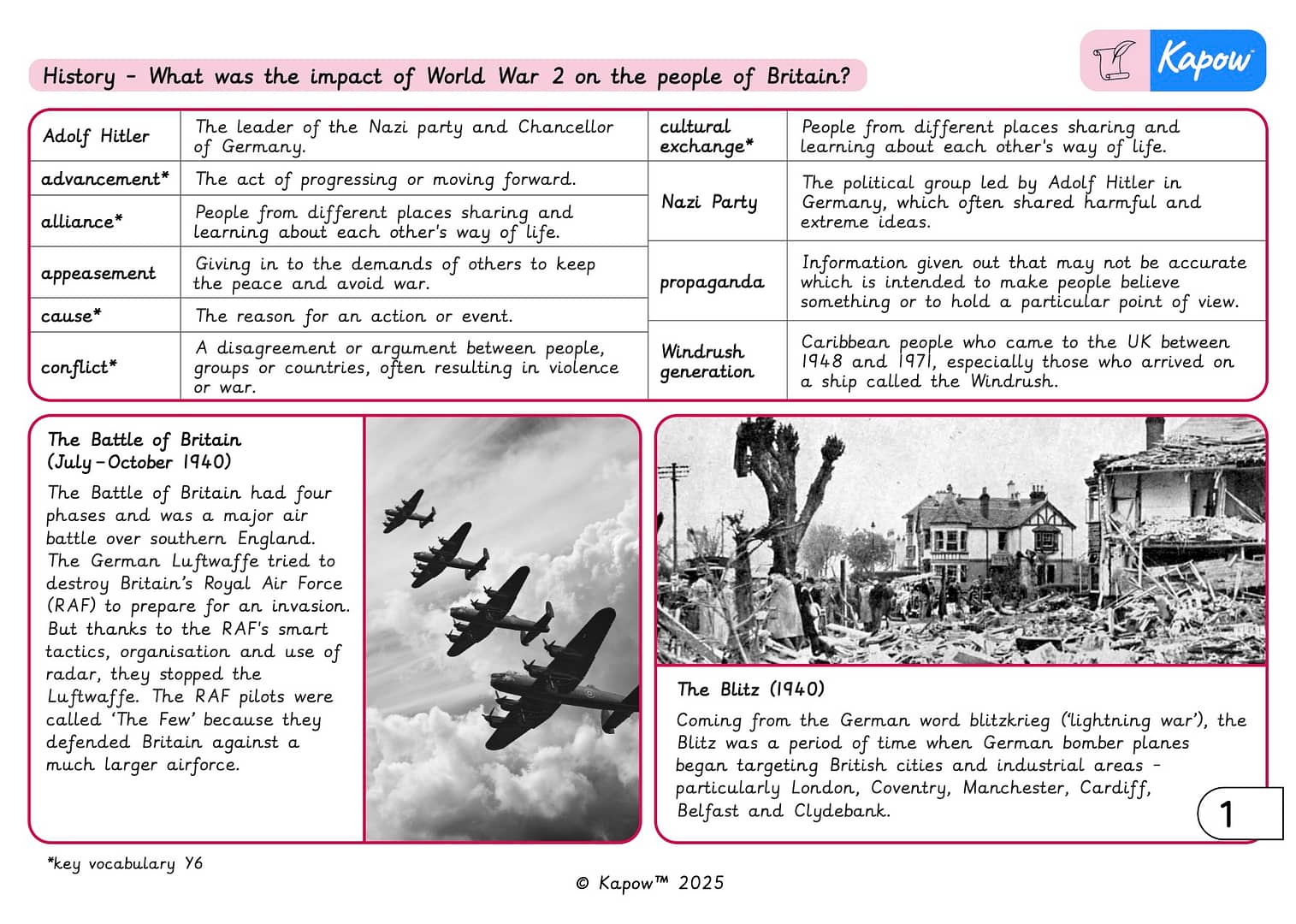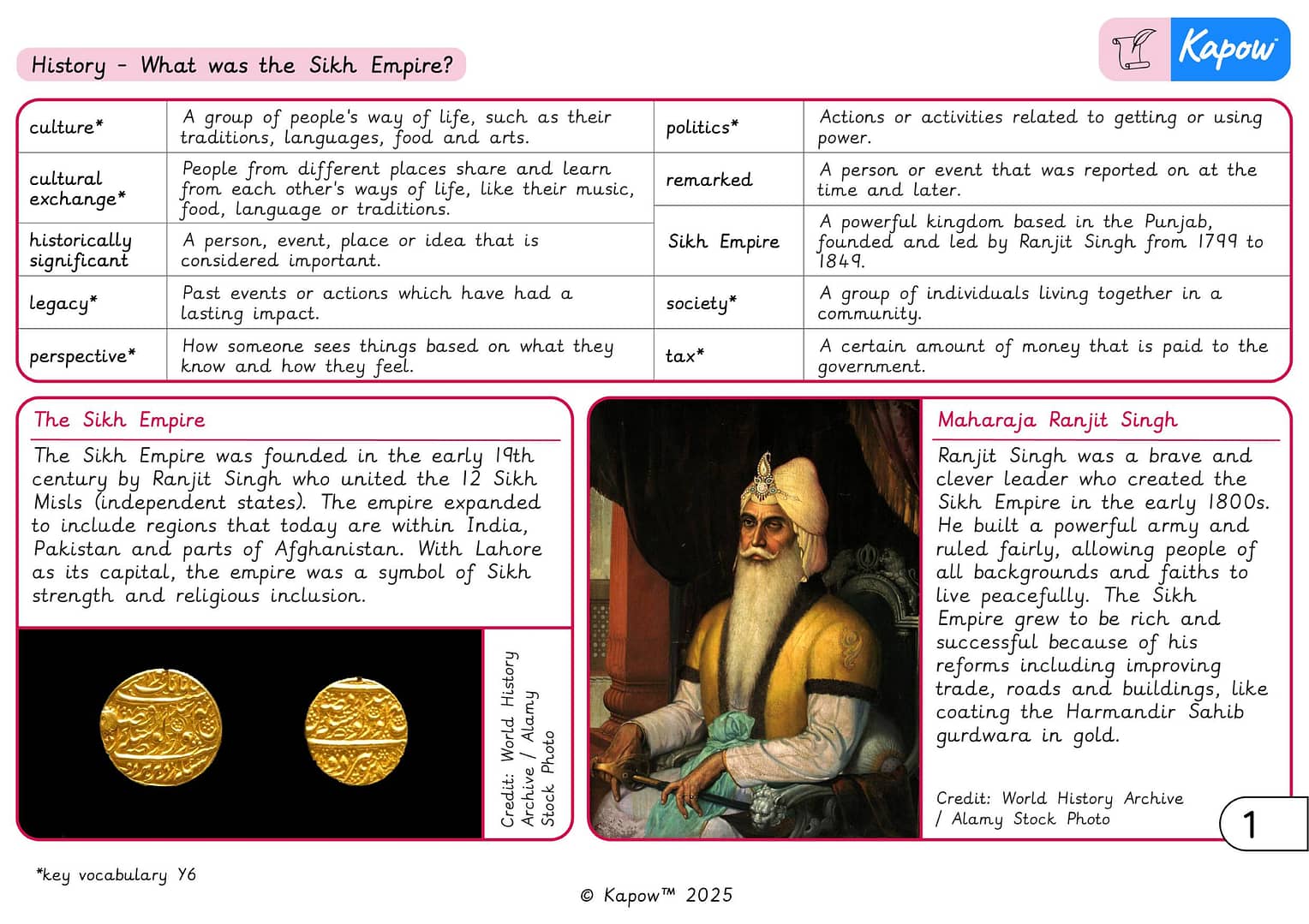Featured Document Type: Knowledge organiser
Knowledge organiser – Science Y1/2 (B): Living things: Microhabitats
A Knowledge organiser that captures the essential knowledge and skills learnt throughout the mixed-age unit Science, Y1/2 (B), Living things: Microhabitats unit.
This resource is designed to support the children as they explore microhabitats. It highlights key vocabulary and concepts, including what microhabitats are, the conditions they provide and the types of minibeasts that live in them. The resource also encourages the use of scientific enquiry skills, such as researching, observing over time and grouping. It is perfect for consolidating essential knowledge and fostering curiosity about the natural world and the small creatures that inhabit it.
Knowledge organiser – History Y1/2 (A): How did we learn to fly?
A Knowledge organiser that captures the essential knowledge and skills learnt throughout the Year 1/2 unit History, Y1/2 (A), How did we learn to fly?
This History resource is designed to support children as they explore flight in the past. It highlights key vocabulary, features significant events and includes images to show how flying developed over time. It is perfect for consolidating essential knowledge.
Knowledge organiser – Science Y1/2 (A): Plants: Plant growth
A Knowledge organiser that captures the essential knowledge and skills learnt throughout the mixed-age unit Science, Y1/2 (A), Plants: Plant growth.
This resource is designed to support the children as they explore the key stages of plant growth and the essential conditions for healthy development. It highlights key vocabulary, processes and concepts, such as germination, the role of roots, leaves and flowers and the importance of water, light and warmth. It is perfect for consolidating essential knowledge and fostering a strong understanding of plant life cycles.
Knowledge organiser – What was the impact of World War 2 on the people of Britain?
A Knowledge organiser that captures the essential knowledge and skills learnt throughout the unit History, Year 5/6 (A), What was the impact of World War 2 on the people of Britain?
This resource is designed to support children as they explore the events of World War 2 and their impact on different people. It highlights key vocabulary and events like the Battle of Britain and the Blitz, what evacuation was like, women’s changing roles and the Windrush generation. It is perfect for consolidating essential knowledge and fostering cross-cultural understanding.
Knowledge organiser – History Y6: What was the impact of World War 2 on the people of Britain?
A Knowledge organiser that captures the essential knowledge and skills learnt throughout the unit History, Year 6, What was the impact of World War 2 on the people of Britain?
This resource is designed to support children as they explore the events of World War 2 and their impact on different people. It highlights key vocabulary and events like the Battle of Britain and the Blitz, what evacuation was like, women’s changing roles and the Windrush generation. It is perfect for consolidating essential knowledge and fostering cross-cultural understanding.
Knowledge organiser: What was the Sikh Empire?
A Knowledge organiser that captures the essential knowledge and skills learnt throughout the unit History, Year 5/6 (B), What was the Sikh Empire?
This resource is designed to support children as they explore significant places and people in the Sikh Empire. It highlights key vocabulary, where the Punjab region was, why Lahore was significant to the Sikh Empire, who Maharaja Ranjit Singh was and what he achieved. It is perfect for consolidating essential knowledge and fostering cross-cultural understanding.
Knowledge organiser – History Y6: What was the Sikh Empire?
A Knowledge organiser that captures the essential knowledge and skills learnt throughout the unit History, Year 6, What was the Sikh Empire?
This resource is designed to support children as they explore significant places and people in the Sikh Empire. It highlights key vocabulary, where the Punjab region was, why Lahore was significant to the Sikh Empire, who Maharaja Ranjit Singh was and what he achieved. It is perfect for consolidating essential knowledge and fostering cross-cultural understanding.

